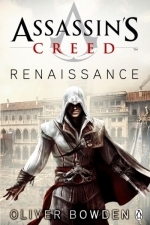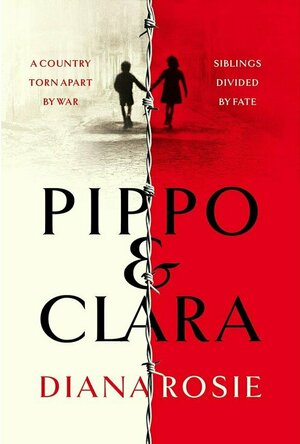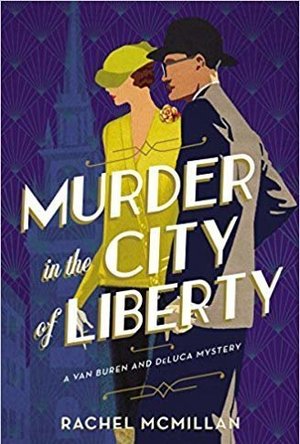
Theorizing Art Cinemas: Foreign, Cult, Avant-Garde, and Beyond
Book
The term "art cinema" has been applied to many cinematic projects, including the film d'art...
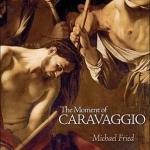
The Moment of Caravaggio
Book
This is a groundbreaking examination of one of the most important artists in the Western tradition...
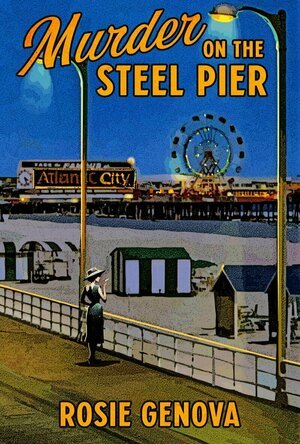
Murder on the Steel Pier (A Tess Mancini Time Travel Mystery #1)
Book
Greetings from the Nifty Fifties… The morning after a blowout birthday celebration in Atlantic...
Historical Mystery Time Travel
David McK (3687 KP) rated Assassin's Creed: Renaissance in Books
Jan 28, 2019
To date, I've played pretty much all of those games (or, atl least, those released for the PS3 and PS4), with the exception of Assassin's Creed: Unity. I'm also a heacvy reader, and have also seen to so-so Assassin's Creed movie (starring Michael Fassbender) that made the - in my eyes, wise, - decision to introduce a new character and historical period.
As such, I think it's fair to say I know enough about the series itself.
Of that series, the most enjoyable game (IMO) have been those set in the Renaissance period; those starring Ezio Auditore - the protaganist of this novel. Unfortunatley, however, this is a virtual retreading of the plot of the game, complete with passages where Ezio learns how to blend in (C'mon! It makes sense in the game, but not exactly an exciting narrative) or has to race hios accomplices from points A to point B (again, gives the player something to do in the game, but not exaclt exciting to read about).
It also doesn't help that this liberally mixes modern-day English and expressions with Italian phrases throughout (that require constant look-up to the glossary), nor that the author seemingly manages to make an entertaining game and compelling central character(s) into a bit of a chore to read through. On the plus side, it does away with all the modern-day Desmond sections from the game ...
Overall, however, I'm not impressed (sadly).
ClareR (6054 KP) rated Pippo and Clara in Books
Apr 16, 2021
Pippo and Clara arrive in the city with their mother after their Romany father is murdered. One morning their mother gets up early to buy food and doesn’t return. Clara goes to look for her, turning right at the entrance to their building; later Pippo awakens and goes to look for his mother and Clara, turning left at the entrance. This change in direction means the children don’t see one another for a long time.
Luckily, they are each adopted into families (unofficially) who love and care for them - Clara’s family are Fascists, Pippo’s are Communists.
This was such an emotional story. It wasn’t just what happened to these children, it was the bigger picture as well. When the inevitable happens and the Germans occupy Italy, Jews are rounded up and taken away, people fear for their freedom and their lives.
It was fascinating to read about the Freedom Fighters (Partisans) and their acts of espionage, as well as how they fought back. This included even those who had been fascists under Mussolini’s regime.
There’s so much to talk about in this book (perfect for a book club, I should think!), but I won’t spoil it. Needless to say, I really enjoyed it and was thoroughly heartbroken by the end. Any book about war is going to have tragic elements, but this is about hope as well, and the fact that good can, and did, overcome evil.
Another recommendation for the historical fiction fans. It’s a fabulous novel.

Virtual Uzbekistan
Travel and Photo & Video
App
Virtual Uzbekistan includes 360° panoramas of historical monuments and places of Uzbekistan in HD...
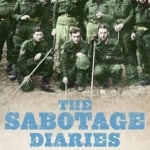
The Sabotage Diaries: The True Story of a Daring Band of Allied Special Forces and Their Covert Operations in Nazi-Occupied Greece
Book
Based on the wartime diaries of Allied soldier and saboteur Tom Barnes, this account of thrilling...
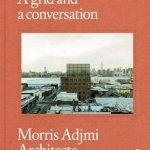
A Grid and a Conversation: Morris Adjmi Architects
Morris Adjmi, Diane Ghirardo, Jimmy Stamp and Bill Higgins
Book
A Grid and a Conversation presents a survey of work by the New York City-based firm Morris Adjmi...
The Chocolate Lady (94 KP) rated Murder in the City of Liberty (A Van Buren and DeLuca Mystery #2) in Books
Oct 6, 2020
For example, I was terribly confused by the scene which has DeLuca saving Van Buren from almost drowning. The whole episode just wasn't described so that I could visualize what was going on, who was where, how she got into the water, and how he was able to find her to save her. I'm hoping that this is fixed in the final version.
By the way, I don't think that this author knows Chicago that well. She describes a warehouse there near the lake, but by her description, it sounds like it is only yards from the lakefront. However, as far as I know there were never any shipping warehouses on the lakefront, only on the river. That means the characters in that scene couldn't have been looking out on Lake Michigan, but only onto the Chicago River.
Another thing that confused me was why the author gave DeLuca - who is so Italian that he translates from that language into English - a very Scottish first name like Hamish. If that's explained in the first novel, I really wish the author had added a line about it in this one.
Finally, the "romance" bit here - or should I call it angst - was too overpowering for me. DeLuca goes on and on about every aspect of this woman and why he adores her and how he feels when he's around her. When she started in on her feelings towards him, well... that's when I gave up on this book. (I only read about 15%.)
This is really a shame because I've been trying to find a good cozy mystery series where I can fall in love with the protagonist/s and enjoy some harmless sleuthing on a historical backdrop. I'm afraid this one didn't deliver for me.
Now I have to figure out what I'm going to tell NetGalley when I tell them I'll not be reviewing this book.
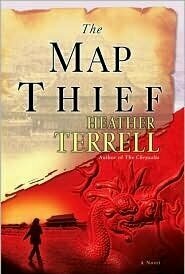
The Map Thief
Book
Beijing, China, 1421: It is a momentous time for the Ming Dynasty. Honoring the completion of the...
